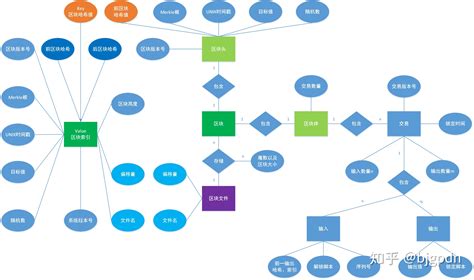Title: Exploring the Role of Blockchain in Accounting: A Research Institute Perspective

In recent years, the emergence of blockchain technology has led to significant disruptions across various industries, including finance and accounting. The establishment of a Blockchain Accounting Research Institute signifies a proactive approach towards understanding and harnessing the potential of this innovative technology within the realm of accounting. Let's delve into the key aspects and implications of such an institute.
Understanding the Role of Blockchain in Accounting:
Blockchain technology, often referred to as a decentralized ledger, offers a transparent and immutable record of transactions. In accounting, this translates to enhanced transparency, reduced fraud risk, and increased efficiency in processes such as auditing and financial reporting.
Research Objectives and Focus Areas:
The primary objective of a Blockchain Accounting Research Institute would be to conduct indepth studies and analysis on the integration of blockchain technology in accounting practices. Some key focus areas may include:
1.
BlockchainBased Financial Reporting:
Exploring the potential of blockchain in facilitating realtime financial reporting, ensuring accuracy, transparency, and accountability.2.
Audit Trail and Assurance:
Investigating how blockchain can provide an indelible audit trail, enabling auditors to verify transactions efficiently while minimizing the risk of manipulation.3.
Smart Contracts and Automation:
Studying the implementation of smart contracts in automating accounting processes such as invoicing, payments, and reconciliation, thereby reducing errors and operational costs.4.
Regulatory Compliance:
Examining the regulatory implications of blockchain adoption in accounting, including data privacy, security standards, and regulatory compliance requirements.5.
Blockchain Integration in ERP Systems:
Assessing the integration of blockchain technology with Enterprise Resource Planning (ERP) systems to streamline accounting procedures and enhance data integrity.Collaboration and Partnerships:
A Blockchain Accounting Research Institute would likely collaborate with various stakeholders, including academic institutions, regulatory bodies, industry associations, and technology firms. These collaborations would foster knowledge exchange, facilitate research funding, and promote the adoption of best practices in blockchainbased accounting.
Educational Initiatives and Training Programs:
In addition to research activities, the institute may offer educational initiatives and training programs aimed at professionals in the accounting and finance sector. These programs could include workshops, seminars, and certification courses designed to equip participants with the knowledge and skills required to leverage blockchain technology effectively.
Industry Impact and Future Outlook:
The establishment of a Blockchain Accounting Research Institute signifies a pivotal shift in the accounting profession towards embracing technological innovation. By conducting rigorous research and fostering collaboration, such an institute can catalyze the adoption of blockchain technology, paving the way for more transparent, efficient, and secure accounting practices.
In conclusion, the establishment of a Blockchain Accounting Research Institute holds immense potential in advancing our understanding of blockchain's role in accounting and finance. Through research, collaboration, and educational initiatives, such an institute can drive meaningful change and contribute to the evolution of accounting practices in the digital age.
版权声明
本文仅代表作者观点,不代表百度立场。
本文系作者授权百度百家发表,未经许可,不得转载。

















评论